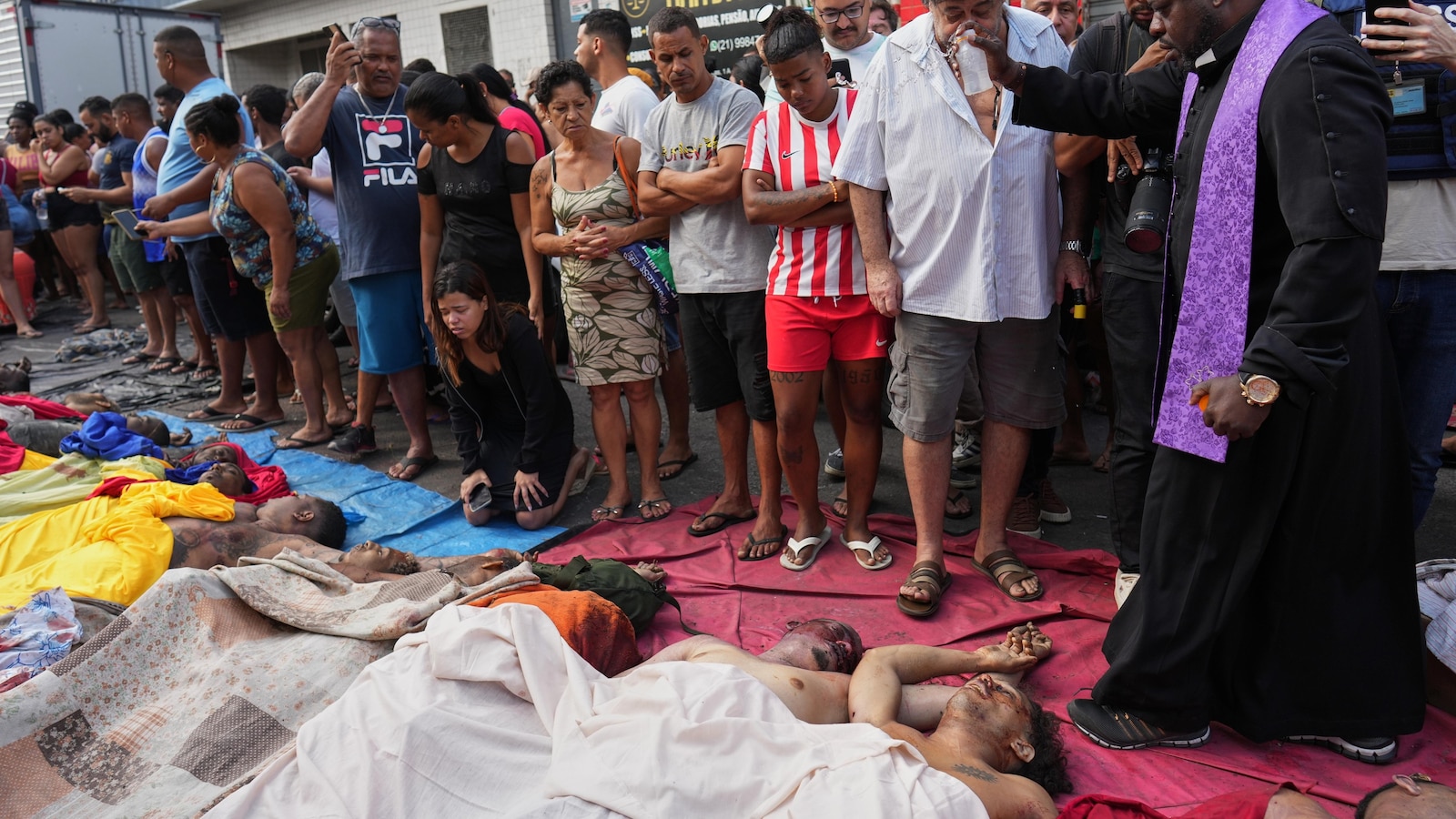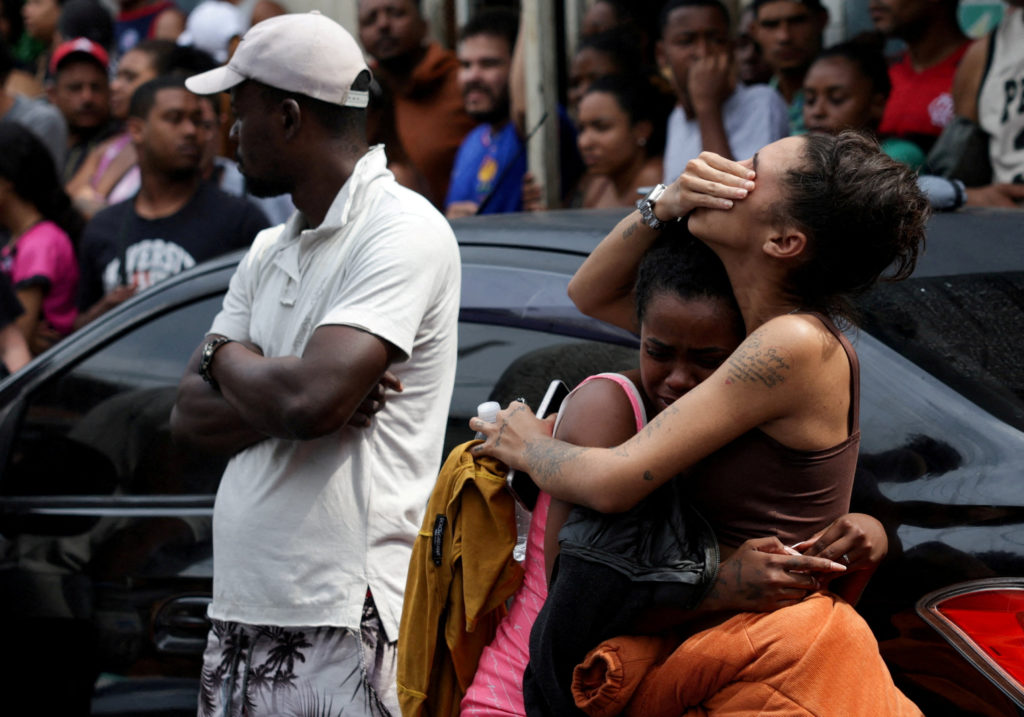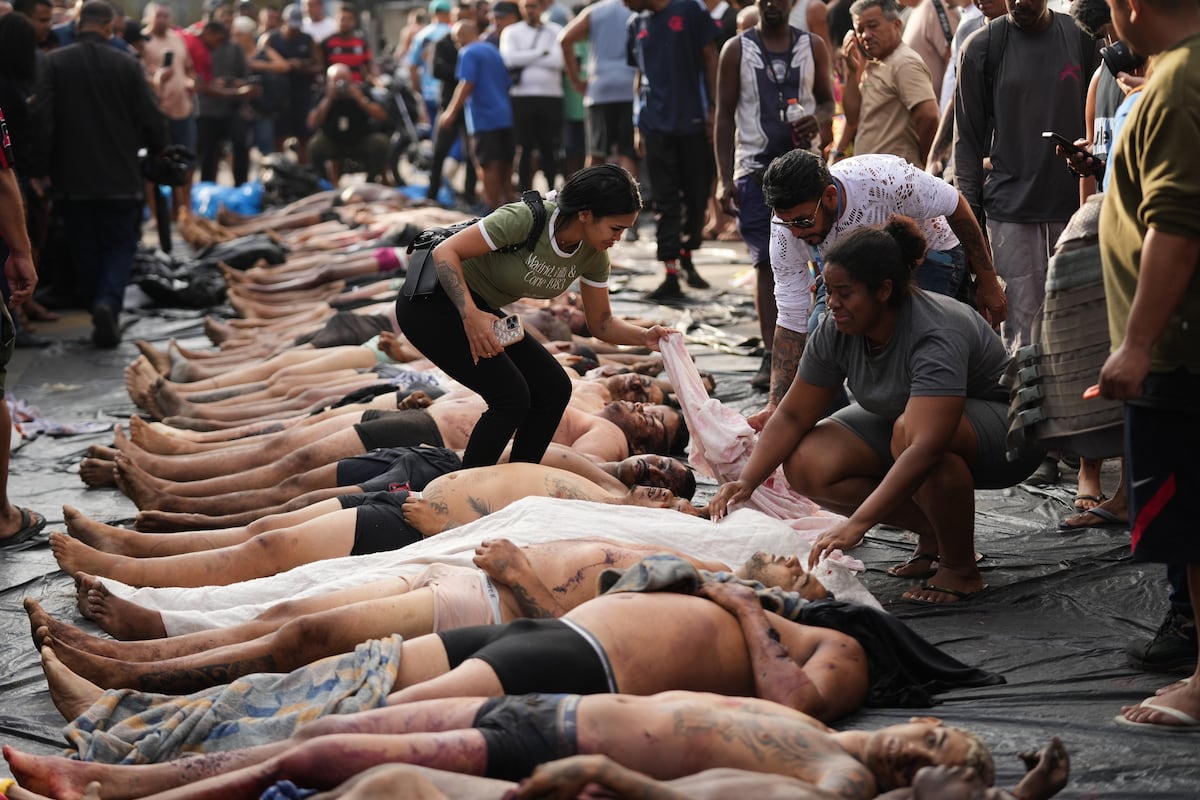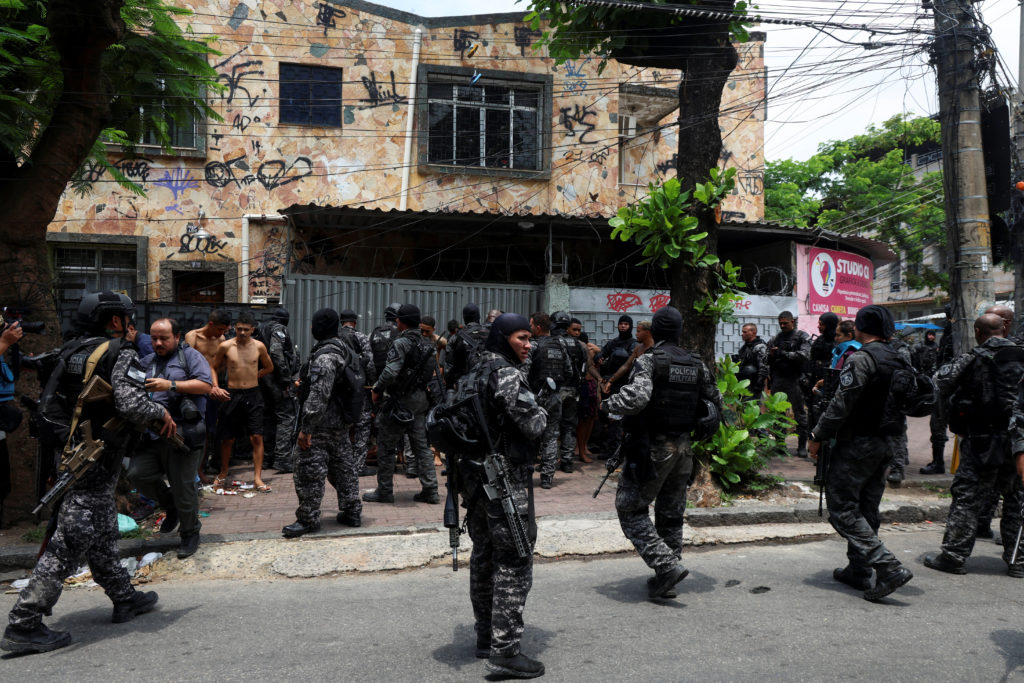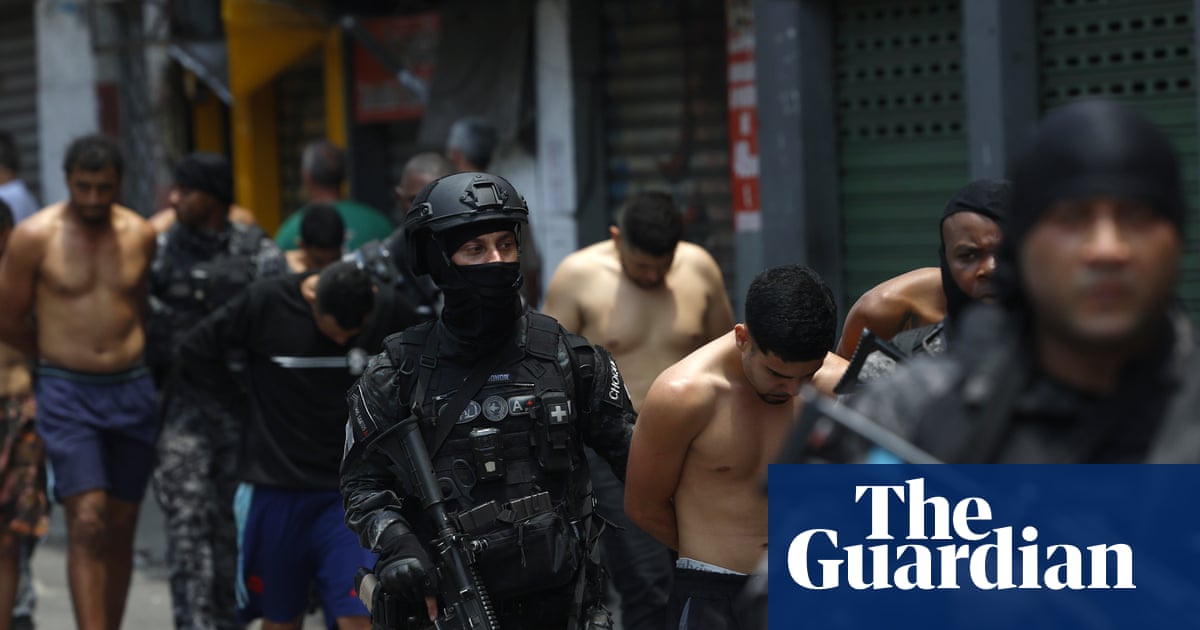Rio Favela Raid Leaves Over 60 Dead; UN Calls for Investigation
A deadly police raid in a Rio favela, targeting the Red Command gang, resulted in over 60 deaths, including four officers, and 81 arrests, prompting a UN human rights investigation.
Subscribe to unlock this story
We really don't like cutting you off, but you've reached your monthly limit. At just $5/month, subscriptions are how we keep this project going. Start your free 7-day trial today!
Get StartedHave an account? Sign in
Overview
- A police operation in a Rio de Janeiro favela, targeting the Red Command gang, resulted in over 60 fatalities, including four officers, making it one of the city's deadliest raids.
- The raid resulted in 81 arrests and the seizure of 93 rifles and over half a ton of drugs, as authorities aimed to curb the Red Command gang's territorial expansion.
- During the intense operation, gang members reportedly used drones to target police officers and launched grenades, while suspected criminals also blocked roads.
- Following the raid, residents of the Penha favela gathered dozens of bodies, mostly young men, and laid them in a central square, highlighting the community's profound grief.
- The U.N. Office for Human Rights expressed horror at the deadly operations, calling for thorough investigations and reminding authorities of their human rights obligations.
Report issue

Read both sides in 5 minutes each day
Analysis
Center-leaning sources frame this story by emphasizing the human cost and brutality of the police raid, portraying it as an example of excessive force. They prioritize the perspectives of residents and activists, while contextualizing official statements. The narrative consistently highlights the devastating impact on the community and questions the operation's effectiveness through structural and linguistic choices.
Articles (13)
Center (3)
FAQ
There is no explicit official statement from Rio de Janeiro authorities about the high fatalities in the provided content. Generally, authorities frame such operations as necessary to combat organized crime and enhance public safety, but details on their specific reaction to the death toll are not included.
The article does not provide direct reactions from local residents or community organizations. However, such large-scale operations in favelas often draw criticism from human rights groups and local activists, who cite concerns about collateral damage, civilian casualties, and the militarization of public security.
The article mentions bystanders were injured during the raid, but does not detail any specific measures to address their needs, provide medical assistance, or compensate victims. Operations of this scale frequently raise questions about accountability and support for affected civilians.
The article does not mention any international organizations commenting on or monitoring this specific incident. However, such events often attract scrutiny from groups like Amnesty International and the United Nations, which have historically criticized excessive use of force in Brazilian police operations.
The article does not specify next steps, but it highlights ongoing efforts to combat organized crime and curb territorial expansion. Typically, after such operations, authorities may announce increased patrols, further investigations, or new security initiatives, though these are not detailed here.
History
- 6d

 4 articles
4 articles
- 6d

 3 articles
3 articles
